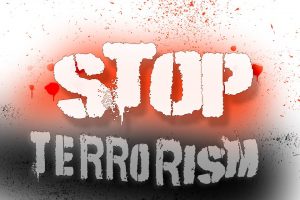“Know thy enemy: Education about terrorism improves social attitudes toward terrorists”-An Interview with Jordan Theriault

 Terrorism is one of the biggest threats we are facing today. It is something that has managed to cause fear and hatred amongst people and then those emotions direct how we react to it. This will not help us deal with terrorism, so to be able to deal with it, we need to first understand it. This is what the research “Know thy enemy: Education about terrorism improves social attitudes toward terrorists” by Jordan Theriault, Peter Krause, Liane Young, looks at. It shows that studying about terrorism can lead to people making more rational decisions about how terrorism should be dealt with.
Terrorism is one of the biggest threats we are facing today. It is something that has managed to cause fear and hatred amongst people and then those emotions direct how we react to it. This will not help us deal with terrorism, so to be able to deal with it, we need to first understand it. This is what the research “Know thy enemy: Education about terrorism improves social attitudes toward terrorists” by Jordan Theriault, Peter Krause, Liane Young, looks at. It shows that studying about terrorism can lead to people making more rational decisions about how terrorism should be dealt with.
- Could you touch a bit on what the research is for our audience who may be learning about it for the first time?
The study tested students’ attitudes about terrorists both before, and after they completed a course in counter terrorism. Later, we tested students at schools across the United States. The goal was to see how learning about terrorism would affect students’ attitudes toward terrorists.
What we found was surprising: at the end of the semester, students who completed the course hated terrorists less. It was not that they felt positively toward terrorists, but they rated their attitude as less extremely negative (e.g. on questions such as, “would you get along with a terrorist?”, or “how similar are you to a terrorist?”). This was true in courses at other schools across the United States as well, and did not appear to be affected by the political views of either students or professors.
It is worth asking why it would ever be desirable to reduce hatred of terrorists. We discussed this in the paper a fair amount, but typically, the most effective policies for dealing with terrorism involve treating them as rational actors, who are motivated by political goals. Understanding terrorists’ political goals is not the same thing as cooperating with them. For instance, India beat back Islamic militants in Kashmir by recognizing internal divisions in the movement, and flipping adversaries to fight on their side. Likewise, the United States located and killed the former leader of Al-Qaeda in Iraq (now ISIS) by interviewing suspects and members of the community to understand social ties within the terrorist network. Indiscriminate hatred (in politicians or citizens) is more likely to lead to indiscriminate policies, harming the communities surrounding terrorists, and driving more support for their extreme ideologies. In fact, inviting this indiscriminate retaliation is a key strategy of terrorist groups.
- What got you interested in doing this research?
I have always been interested in politics, and this project came about through a collaboration between my adviser, Liane Young, and her colleague, Peter Krause. Peter had been collecting data for a few years when I joined, so it was a great opportunity to work with an exciting data set.
It is also quite rare that studies examining the effects of education allow for causal inferences, as this study does. For instance, if you simply studied students’ attitudes before and after they took a course, then any changes could just stem from the sort of student who would take the course—i.e. the sample of students taking the course is biased. In this study, Peter had come up with a clever solution, taking advantage of the fact that students were randomly assigned their times to choose courses. We compared students who were in the course to students who were waitlisted after the course was full. Presumably, the only difference between the groups was that the students in the course were randomly given an earlier course selection time. This allowed us to make stronger inferences about the effect of the class.
- How do you think educating ourselves about terrorism can help to fight terrorism?
 Educating ourselves about terrorism, and avoiding the impulse to think of terrorists as mindlessly evil, can help create an environment where we make decisions based on what is effective, rather than what seems the most righteous. It might feel morally justified to retaliate against terrorists, but doing so indiscriminately will typically galvanize their communities and increase their support. This is idea is captured well by Terence MacSwiney, a Sein Féin mayor, who said: “It is not those who can inflict the most, but those that can suffer the most who will prevail.”
Educating ourselves about terrorism, and avoiding the impulse to think of terrorists as mindlessly evil, can help create an environment where we make decisions based on what is effective, rather than what seems the most righteous. It might feel morally justified to retaliate against terrorists, but doing so indiscriminately will typically galvanize their communities and increase their support. This is idea is captured well by Terence MacSwiney, a Sein Féin mayor, who said: “It is not those who can inflict the most, but those that can suffer the most who will prevail.”
- Do you think providing people with neutral information about terrorism be better than positive information to counter the negative information they have learned?
Yes. Many studies in Psychology have tried to reduce prejudice, but they often run into a problem with sub typing. Sub typing is when you learn something that could disprove a stereotype, but make an exception for that particular source, rather than correcting the stereotype. For instance, if a racist met an African American that he liked, then he might just decide that this particular person is “one of the good ones”.
A similar problem could have happened if we had presented positive information about terrorists. Students would most likely have compartmentalized any positive information, thinking that it applies to some terrorists, but that it should not change their opinion or approach about other terrorist groups. Our point is that counter terrorism is more effective when people allow themselves to consider terrorists’ political goals (even when those goals are abhorrent), and that blind hatred is counterproductive toward that aim.
- Do you think everyone should be educated about terrorism or just the people appointed to take measures to deal with terrorism?
I think everyone should be educated about terrorism. In a democracy, actions taken to deal with terrorism need to have public support. If people blindly hate terrorists, then indiscriminate retaliation is an easy route for leaders to propose. Relatedly, the term “terrorist” is a powerful rhetorical tool. Calling a certain group “terrorists” can change the way the public responds, and some groups can be subjected to extreme treatment that would not be tolerated otherwise. For instance, in the United States, accused foreign terrorists can be held indefinitely without trial. In these cases, it seems proper that people be educated about what terrorism is, so they can question for themselves whether the label is being used responsibly.
- Where are studies at the moment and where do you anticipate findings going in the next year or so?
While the findings were fascinating, the design did not allow us to determine which information was most effective in changing attitudes. Students completed the entire course, and we asked about their attitudes at the end of the semester. We are currently working to determine what course material had the largest effect on their views, and hope to have this work prepared soon.
- What are some challenges you have faced during the times of your research?
The paper was very challenging to write, as we are trying to make a fairly fine point. Terrorists are a hated group, and it is difficult to make the point that this hatred should be relaxed—especially when many readers will approach the paper with that same negative attitude. It took a great deal of work to ensure that our point got across properly: that hatred of terrorists is counterproductive to defeating them.
- Do you have additional resources or further readings for those who want to learn more about the topic?
Talking to the Enemy: Religion, Brotherhood, and the (un)Making of Terrorists,
By Scott Atran
This is a very accessible entry point for understanding the motivations of terrorists. It explains the group dynamics that can contribute to violence.
Virtuous Violence
By Alan Fiske & Tage Rai
This is a bit more academic, but it does an excellent job of describing in detail why people can feel moral while committing acts of violence. Again, this provides a lot of information about how relationships can be drive violence.
Rebel Power: Why National Movements Compete, Fight, and Win.
By Peter Krause
This book by my collaborator, Peter Krause, outlines the dynamics within rebel movements. It would be helpful for readers interested in the broader political goals of rebel or terrorist groups, and how these can change over time.
The research shows that it would be better if we were to educate ourselves about terrorism so that we can come up with better measures to deal with it much more effectively, instead of letting it spread hate.





Responses